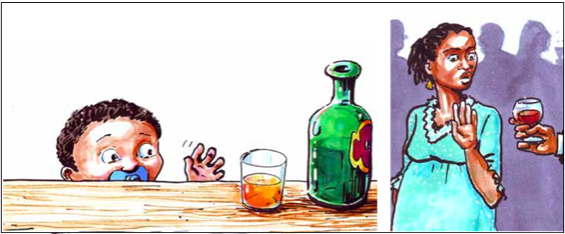Alcohol kills; drink responsibly
Alcohol kills; drink responsibly sadmin
Trade and Industry Deputy Minister Elizabeth Thabethe urged South Africans to use has alcohol responsibly and help reduce alcohol abuse among children. Speaking at the launch of the National Sobriety Week campaign from 7 to 14 September 2012, the deputy minister described alcohol abuse as a growing crisis.
South Africa is ranked 52nd out of 191 countries on alcohol consumption and ranked fourth on a scale of between one and five (more risky). “I do not believe this is the record we are proud to hold as a nation.”
According to the World Health Organisation (WHO), the annual liquor consumption by South Africans amounts to 7,87 litres of pure alcohol per person. Research also indicates that the youth drink more than adults, which poses a problem for the future of the country. Alcohol abuse also costs the country between R9 and R10 billion a year and contributes to violence. “South Africa is among the top 10 consumers of liquor in the world,” The Deputy Minister said, adding that the country now has high levels of babies born with foetal alcohol syndrome (FAS). She said the problem is most rife in De Aar in the Northern Cape with almost 12% of the community affected by FAS. However, there has been a 30% reduction in the FAS rate in this community thanks to the Foetal Alcohol Spectrum Disorders Prevention Programme run by the Foundation for Alcohol-Related Research (FARR) in the area. FARR is one of the non-governmental organisations that work closely with the Department of Health.
Other areas seriously affected by FAS include Wellington in the Western Cape at 8,8%, Upington in the Northern Cape at 6,9% and Diepsloot in Gauteng at 2,7%. Compared to other countries such as the USA which has a total FAS rate of 0,3%, or France and Sweden which stand at 0,1%, provincially South Africa’s numbers are extremely high.
According to research, one of the main reasons for the high provincial rates is the “dop system”. Wine was historically distributed daily to workers as partial payment for labour. This was called the dop system. Despite the system being outlawed in many areas it still remains a general practice.
To coincide with the campaign, the Department of Health has also pleaded with expecting mothers to refrain from drinking alcohol during their pregnancies, as South Africa has one of the highest incidences of FAS in the world. Drinking alcohol during pregnancy can have devastating effects on the unborn baby. These effects include permanent brain damage, behavioural, learning and developmental problems.
Whatever an expecting mother drinks, the unborn baby drinks too. So if a pregnant mother of any age drinks alcohol, there is a high chance of her baby being born with FAS. Most women are unaware that they are pregnant during the fi three months of pregnancy and it is during this time that alcohol can cause the most damage to the unborn baby.
Deputy Minister Thabethe also urged com- munities to reduce their intake of alcohol during the course of the campaign and appealed to communities to start other forms of businesses other than taverns.
“Liquor is a form of doing business but it has both advantages and disadvantages. It has economic benefits but creates fatalities,” she said, urging tavern owners to sell responsibly and for them to respect selling times.
She said fines given to liquor sellers that disobey the law were not effective enough and other avenues needed to be looked at. “Fines don’t work, we must look at other options to do better,” she said, adding that the department might consider withdrawing licences.
“We need to minimise the burden of liquor abuse in our communities. The intervention by government would be to change the pattern of liquor consumption using a multi-disciplinary approach where the effect would be directed at the consumer base.”